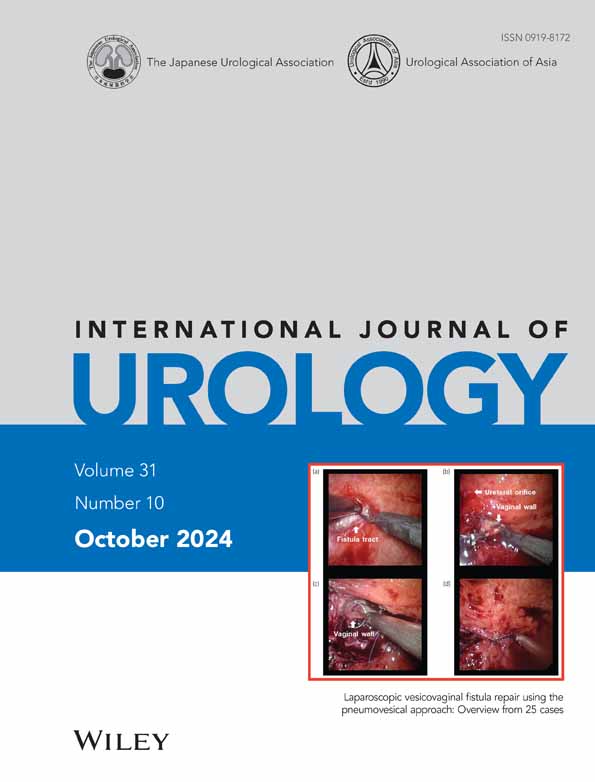Effects of long-term desmopressin treatment for nocturia in older people
Abstract
Objectives
Desmopressin improves nocturia frequency; however, reports on its long-term efficacy and safety are few, and concerns regarding its effect on body composition exist. We thus investigated the efficacy and safety of long-term desmopressin administration and its effect on body composition.
Methods
This retrospective study, conducted at Chikugo City Hospital between August 2020 and December 2022, involved 133 men (mean age, 77.7 years) with nocturnal and persistent nocturia, who were administered an initial dose of 50 μg desmopressin. Efficacy endpoints included nocturnal urinary frequency, nocturnal urinary volume, hours of undisturbed sleep, nocturnal polyuria index, initial nocturnal urinary volume, and daily urinary frequency in a frequency-volume chart (3 days), before treatment and at 1, 4, 12, 24, and 52 weeks after desmopressin administration. Additionally, the effects of desmopressin on body composition were examined, including blood–brain natriuretic peptide and a chest radiography, before and 52 weeks after administration.
Results
Treatment improved most efficacy endpoint evaluation parameters. Around 87.6% of patients showed improved symptoms after 52 weeks compared with those before treatment (score ≤ 3). The blood–brain natriuretic peptide level rose; however, cardiothoracic ratio was unchanged.
Conclusion
Long-term administration of desmopressin is thus effective and safe in older people with nocturnal polyuria, with little effect on body composition.
CONFLICT OF INTEREST STATEMENT
Tsukasa Igawa is an Editorial Board member of International Journal of Urology and a co-author of this article. To minimize bias, they were excluded from all editorial decision-making related to the acceptance of this article for publication.




